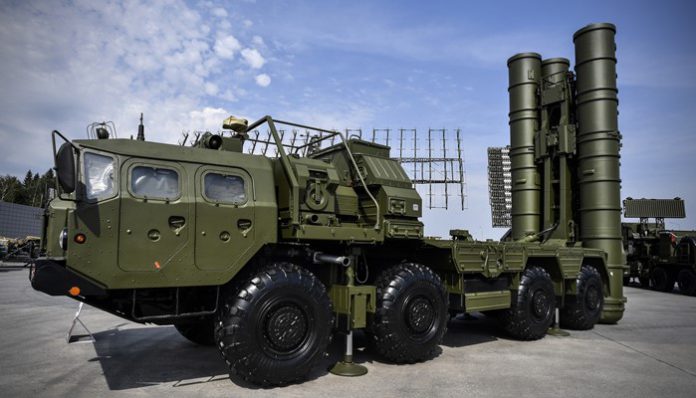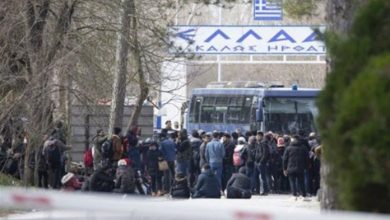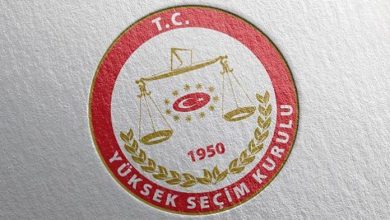Turkish media responds to S-400 purchase
The Pentagon announced Turkey’s suspension from the programme and the beginning of the expulsion process on Wednesday.

Last week, the S-400 missile defence systems arrived in Ankara from Russia, finally turning the long discussed Turkish rift with NATO from theoretical debate to a concrete reality.
U.S. officials have faced criticism for taking as brinkmanship Turkish President Recep Tayyip Erdoğan’s oft-repeated insistence, since signing the deal with Russia in December 2017, that Turkey would go through with the S-400 purchase come what may.
With S-400 parts arriving by the planeload over the past week, Washington has had its wake-up call. The Turkish government was not to be swayed by threats of sanctions, and was willing to give up its place on the F-35 fighter jet programme to procure its choice of missile defence systems.
Weeks before the arrival of the missile systems, this column noted how some writers at government-linked outlets had hinted at the S-400 sanctions as a necessary evil for Turkey to pursue its own foreign policy interests and develop an independent national defence industry.
Erdoğan echoed the same sentiments during last Monday’s rally in Istanbul, commemorating three years since the Justice and Development Party (AKP) survived a coup attempt.
The president talked up the growth of Turkey’s defence industry under his stewardship from providing 20 percent of domestic defence procurement requirements to 70 percent.
The figures are deceptive since the domestically produced hardware still relies on important intermediate goods procured from overseas, in large part from the United States. The possibility of targeted sanctions on Turkey’s defence industry – which is high, given the bipartisan agreement in Congress over the matter – could, therefore, be crippling.
But the AKP is relying on Erdoğan’s U.S. counterpart, President Donald Trump, to counter the congressional desire to sanction Turkey. Trump is, in the true sense of the word, a wild card – on Thursday he made two contradictory statements on the sanctions in the space of hours, first telling reporters he was not considering sanctions on Turkey, then saying his administration was “looking at” them.
The ambiguity to Trump’s motives and statements has led more than once to optimistic interpretations in the Turkish press. Despite months of warnings that Turkey would not receive F-35 fighter jets if it went through with the S-400 purchase, a statement by Trump this week was interpreted by Turkish press as meaning that Turkey would receive the 100 F-35s it has initially ordered, but no more than that.
The Pentagon announced Turkey’s suspension from the programme and the beginning of the expulsion process on Wednesday.
Sanctions or not, the S-400 purchase is seen as a significant advance for Turkey’s regional capabilities, and not only by the government’s media cheerleaders.
The Eurasianists and nationalist leftists in the Turkish press, such as Cumhuriyet columnist Mehmet Ali Güller, have been behind the purchase from the beginning. Güller has called it a move to break Turkey’s dependence on the United States, and said the deal would benefit Turkey in the medium and long-term, despite the initial pain of sanctions.
The secularist daily Cumhuriyet’s defence writer Sertaç Eş was similarly upbeat about the systems’ capacity to “change the balance” of strategic relations in Turkey’s vicinity, while tensions continue simmering over energy disputes in the eastern Mediterranean.
Leftist daily BirGün’s editorial on the S-400s was generally critical of the deal for fostering a reliance on Russia in place of NATO, and rejected the notion that the purchase amounted to a turn away from “imperialism” for Turkey. Nevertheless, it is possible that an implicit, grudging approval of the move could be read into an editorial that devoted the majority of its space to critiquing Western influence on Turkey.
Pro-government newspapers were effusive about the arrival of the new systems, while also taking time to deride pessimistic assessments of the potential impact of U.S. sanctions on Turkey’s economy.
There has certainly been no shortage of these assessments over the past year, during which a previous round of sanctions from Washington threatened to send Turkey’s economy spinning out of control.
Turkey’s currency has rebounded, and other economic indicators have so far proved the most pessimistic commentators wrong. The lira also held strong despite the announcements of Turkey’s expulsion from the F-35 jet programme and the announcement of various lightweight measures from Europe in response to the Turkish gas exploration operations around Cyprus.
Sabah writer Dilek Güngör made the case in a column this week that the Turkish economy’s stability in the face of the recent challenges has proven it to be far safer than those who have created “disaster scenarios” about the economy have reported.
We must hope Güngör is proven right, though with the United States yet to make a firm step on sanctions, it is too early to say firmly whether those “disaster scenarios” were well-founded or not. Moreover, many expect the economy to face a stiff test later this month if the newly appointed central bank governor enacts Erdoğan’s will and lowers interest rates.
If either of these events does leave Turkey’s economy in another tailspin, then we have to hope those who predicted disaster are not singled out.
A final and considerable impact of the S-400 purchase was witnessed on Friday, when Russian state-funded outlet cancelled a Turkish journalist’s political talk show after he interviewed Ahmet Davutoğlu, a senior figure from the AKP who has come out as highly critical of Erdoğan this year.
Murat Boztepe, said afterwards that Davutoğlu, a former foreign minister and prime minister who is thought to be on the verge of defecting from the ruling party, was not a newsworthy figure.
Many see it as a concession by the Russian state-funded outlet for Erdoğan after the Turkish president held firm to buy the Russian weapons.
Source: Ahval




